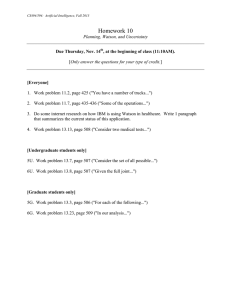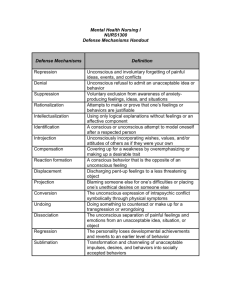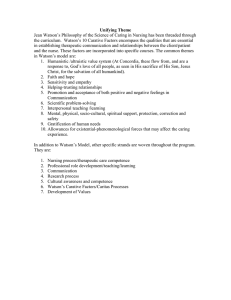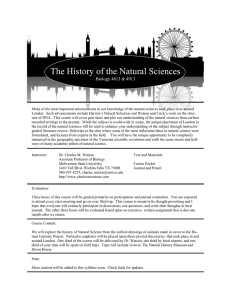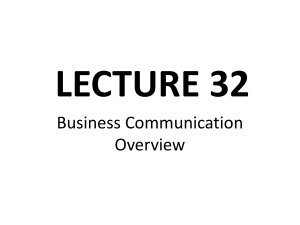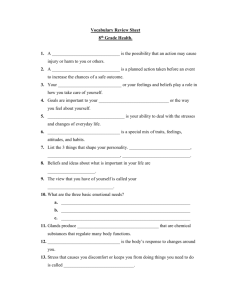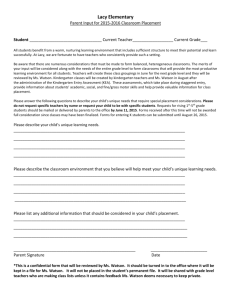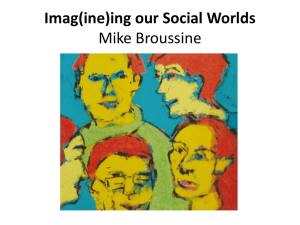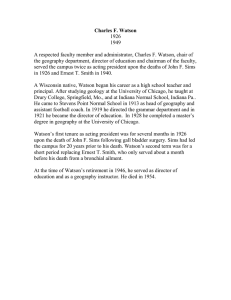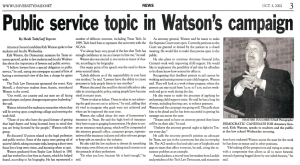Chapter 1 Notes
advertisement
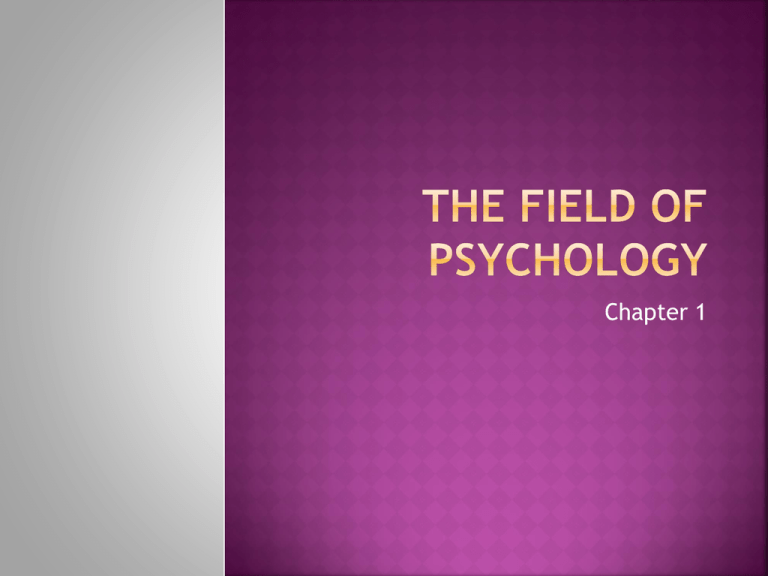
Chapter 1 Handwriting experiment Neat: follow directions well, ask questions Sloppy: don’t follow directions or ask questions Accuracy of predictions? Scientific evidence to support claims? Scientific study of mental processes and behavior (How does the brain work?) Psychologists use “theories” (ideas) to create experiments Claim? Objective evidence for and against claim? Other interpretations of evidence? Logical conclusion? Research- study origin, cause, results of behavior Done in a laboratory Applied make use of research found Done in the real world Chart on page 4 Design a car that will implement the following goals: 1. Increase alertness 2. Improve reaction time 3. Get people to wear seatbelts 4. Get people to obey traffic laws 5. Make long-distance trips more comfortable 6. Eliminate drunk driving Darwin- animals and humans adapt to fit surroundings Survival of the fittest Others perform same/similar behavior to survive Wundt “Father of Psychology” First laboratory to study humans Break down the human mind as we break down parts of other things Introspection- describing thoughts, feelings Objective- giving a true explanation with no outside ideas/bias Freud Personality Adult problems can be traced to childhood events Unconscious self James-psychology How do humans function in their environment? How are thoughts connected? Watson textbook Learning and human emotion Behaviorism- what we do depends on what we feel Built upon past experiences Parenting prevents most psychological problems Sensations/Memories brought up by objects Watson Learned behavior from emotions Rubber band and feelings What other behavior have you learned from your family according the emotions you felt/received? Freud- Did your parents “scar” you for life? 6 approaches Eclecticism- taking from two or more approaches Chemicals in body cause behavior Snake Heart beats, breathe fast, adrenaline Stress and depression Behavior is based upon learning and association of experience Rewards/punishments Skinner and Watson Behavior based upon unconscious feelings Freud- sex and aggression Today- perception, thinking, memory People are good and capable of helping themselves Make good choices Carl Rogers Behavior is based upon how we learn to handle problems Personality characteristics Talk to yourself Behavior is influenced by culture Goals/Expectations Pg. 16- Alcoholism Which psychologist should take the money and research the problem? (Where does the problem start?) Pg. 17 “John” Six approaches to his behavior Which one do you think is correct? Why? List ten behaviors performed in the last 24 hours Which behaviors were forced? Free will? Read Article “Big Ideas: Giving Up the Ghost” What would happen if humans did not have “free will”? How does free will change our perception of people? Does free will dominate the decisions in your life, or do you follow what other people are doing?
